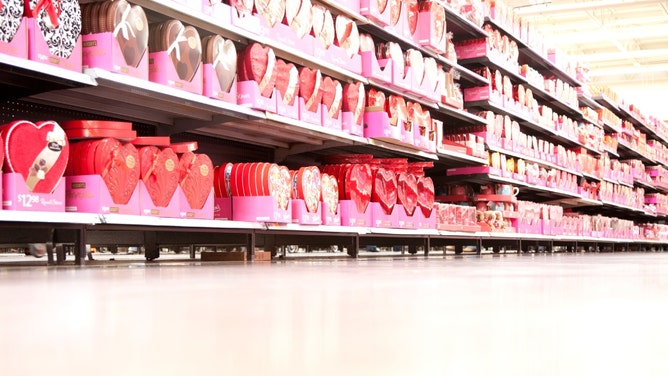We support our Publishers and Content Creators. You can view this story on their website by CLICKING HERE.
I was at Walmart the other day, perusing every manner of crap I don’t need when suddenly I stumbled upon an aisle brimming with red and pink and overflowing with chalky, heart-shaped Necco Wafers with sappy sayings printed on them.
“It’s New Year’s Day,” I thought to myself. “Can’t we even enjoy one holiday before we start having the next one foisted upon us?”
Then, today, I stumbled across an article titled, “Psychologist reveals the reason supermarkets start selling Easter eggs straight after Christmas” from the Metro.
“Great,” I said to myself. “Now we can finally get an answer as to why Halloween decor hits shelves in August, and why Christmas stuff is in stores before I’ve even had a chance to complete my yearly tradition of watching every “Treehouse of Horror” episode of The Simpsons.”

A psychologist has given a very obvious reason why stores put holiday stuff out way too early. (Getty Images)
So, I jumped in, and what I found enraged me…
I was under the impression that this expert psychologist — Kamalyn Kaur — would enlighten us to some degree, but all she said was this: “Shops will often strategically introduce seasonal items well in advance of the actual holiday or event to create a sense of anticipation and excitement that can prompt early purchases.”
B-but… W-what… Lady, I could have told you that!!!!!!!
I was hoping for some deep intel about the Christmas industrial complex, or how or how people have an uncontrollable Freudian urge to buy eggs, but all we got was that the longer stuff is on shelves the more people buy.
I hope you’re sitting down, folks: putting things on sale for three months will usually result in more sales than putting them on shelves for three hours.
In Kaur’s defense, what the hell is she supposed to say to a pretty dumb question? I mean, maybe she could have said, “Why are you asking me? I’m a psychologist; go ask the people at the store,” but God love her for trying to give Metro something to work with.

 Conservative
Conservative  Search
Search Trending
Trending Current News
Current News 





